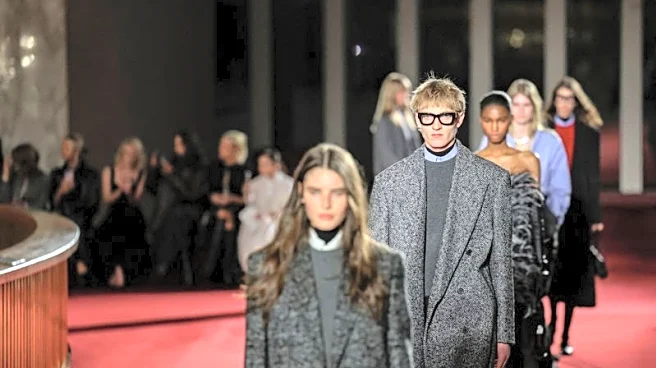It’s the night before Thanksgiving here at BCB After Dark: the coolest club for night owls, early risers, new parents and Cubs fans abroad. Come on in and have a pre-holiday beverage with us. It’s cold
out there, but it’s warm in here. We still have a couple of tables available and none of them are the kids table. We can check your coat for you. Tell us if you need anything. Bring your own beverage.
BCB After Dark is the place for you to talk baseball, music, movies, or anything else you need to get off your chest, as long as it is within the rules of the site. The late-nighters are encouraged to get the party started, but everyone else is invited to join in as you wake up the next morning and into the afternoon.
Last night, I asked you if you thought the Kyle Tucker trade was “a success,” as Cubs GM Carter Hawkins put it. Thirty-nine percent of you said “no” and just 29 percent said “yes.” The rest of you were in the nebulous “meh” zone.
Here’s the part where we listen to music and talk film. We’d love for you to join us in the BCB Winter Science Fiction Classic. But you are free to skip ahead if you want.
I said I’d do my best to feature some Thanksgiving music this week and I promised to play some Vince Guaraldi. I did play Isaiah J. Thompson performing a version of Guaraldi’s “Thanksgiving Theme” from A Charlie Brown Thanksgiving. But here’s Guaraldi performing my favorite tune from that special, “Little Birdie.”
You voted in the BCB Winter Science Fiction Classic and finally we didn’t have a close vote that I had to break a tie or something. Instead, the two-seed Planet of the Apes (1968) romped over the secven-seed, the animated Fantastic Planet.
Our final first-round matchup of the “New Hollywood” bracket are two mysterious films about first contact with an alien race. One is the Stanley Kubrick-directed epic 2001: A Space Odyssey from 1968. The other is director Nicolas Roeg’s cult classic The Man Who Fell to Earth (1976) which stars David Bowie. The two films could not have approached the topic of “first contact” more differently.
Like Planet of the Apes, it is difficult to separate 2001: A Space Odyssey from its legacy. However, I’m not familiar with any 2001 toys, however. There are some “collectables” that have been released in recent years, however.
- 2001: A Space Odyssey.(1968) Directed by Stanley Kubrick. Starring Keir Dullea and Gary Lockwood.
It’s a goal in my life to one day see 2001: A Space Odyssey in a theater. They usually re-release it for like a one- or two-day engagement every five years, but I never seem to catch it. Maybe I’ll get another chance in 2028.
Like Planet of the Apes, I’m going to assume that most of you who are following along with this have seen 2001, or are at least familiar with it. “Open the pod bay doors, HAL” and the response “I’m sorry Dave. I’m afraid I can’t do that” are still famous today as warnings about the dangers of computers and artificial intelligence. Richard Strauss’ Also sprach Zarathustra is now synonymous with overly dramatic scenes. Director Hal Ashby used it semi-sarcastically as Chance the Gardner (Peter Sellers) walked the streets of Washington for the first time in Being There. No one missed the reference then and no one misses it today.
So what can you say about 2001: A Space Odyssey? It’s hard to imagine what kind of impact the special effects had in 1968. Compare the look of this film to any other science fiction film made before Star Wars. It looks real and it looks fantastic. Kubrick even pulls off a lot of artificial gravity effects that even directors today are loathe to attempt because of the difficulty and cost. They are so realistic that people came up with insane conspiracy theories that Kubrick faked the moon landing a year later. (And yes, that’s insane.)
Admittedly, if you aren’t willing to suspend your disbelief at all you can tell some shots that are miniatures superimposed over a starry background, but it certainly looks better than anything before it and if we’re being honest, better than most of what came after it. Kubrick won his only Oscar for supervising the special effects of 2001.
There is probably no film that captures the sheer majesty and just sheer awe of space better than 2001: A Space Odyssey. The people—the actors— and their concerns seem small. Insignificant, even. Everything, including the plot, is slow, deliberate and extremely large. The people are dwarfed by their surroundings. As Roger Ebert asked, would the film be any different as a silent picture (with a soundtrack, of course)? Certainly not much. The final movements of the film are without dialogue anyway.
Like the classical music that Kubrick uses in the soundtrack, 2001: A Space Odyssey has movements like a symphony. There’s the famous prologue, set in prehistoric times, where early hominids, the ancestors of humanity, first encountered the monolith on earth. Of course, the monolith inspires these hominids to create the first weapons and uses them in an opera of violence.
The first act then takes the action out into space and a trip to the moon, where yet another monolith has been discovered. Much of this movement is world-building, showing us what life in the year 2001 was like. The second act is the one that most people remember and is the most conventional part of the film. This is where astronauts David Bowman (Dullea) and Frank Poole (Lockwood) are forced into battle with the HAL supercomputer that has gone rogue while on a mission to Jupiter.
The third and final movement is a trippy, psychedelic denouement that takes Dave into a world beyond his imagination, and one presumes, ours. This is the most controversial part of the film, where people expect an answer to the mystery that they’ve been waiting for throughout the film. Instead, Kubrick gives an answer that just raises more questions.
Where heads butt over 2001: A Space Odyssey is over the content of the film itself. It’s certainly slow and deliberate, and some find it boringly so. (More find it awe-inspiring, however.) Many, including Soviet director Andrei Tarkovsky, had a “what the heck was that about?” reaction to the ending. Others would say that’s the point. We are too small to understand the majesty of space.
The paradox of 2001: A Space Odyssey is that the criticisms one can level at its are also the things that others like best about it. There’s really no character development, it’s slow, the plot doesn’t resolve so much as it just ends—all of these are strengths in the eyes of others.
Above all, 2001: A Space Odyssey made science fiction the stuff of “serious” movies. This isn’t an elevated kids movie. This is a serious film about space for adults. That was rare in 1968 and it’s still uncommon today.
Obviously, it is still considered a masterpiece today. In the most recent (2022) BFI Sight & Sound poll of the greatest films ever made, 2001: A Space Odyssey was ranked as the sixth-best film ever made. High praise indeed.
Here’s the trailer for the restoration and 50th anniversary release of 2001: A Space Odyssey in 2018.
8. The Man Who Fell to Earth (1976). Directed by Nicholas Roeg. Starring David Bowie, Candy Clark, Buck Henry and Rip Torn.
The Man Who Fell to Earth is another attempt to make an “adult” science fiction film. But it announces that it’s different from 2001: A Space Odyssey early in the film when Thomas Jerome Newton (Bowie) is playing with lawyer Oliver Farnsworth’s (Henry) HiFi system. Also sprach Zarathustra comes on over the speakers. Thomas quickly picks a different piece of music.
The Man Who Fell to Earth is based on a Walter Tevis novel, who also wrote The Hustler, The Color of Money and The Queen’s Gambit, all of which have been turned into successful films or television. It’s a character study of an alien (Newton) who comes to Earth on a mission to find water for his drought-stricken planet. But instead, he finds himself sidetracked by the vices of earth.
Roeg liked to cast rock stars in his films. He cast Mick Jagger in his first film Performance and Art Garfunkel in the film that he made after this one, Bad Timing. But while this was David Bowie’s first official acting gig, he had, of course, been playing an otherworldly alien on stage for years. The casting works because we expect a visitor from another world to look like David Bowie. Bowie, for his part, used stills from The Man Who Fell to Earth on the cover of his next two albums, Station to Station and Low.
Bowie plays Newton, an alien who lands in the New Mexico desert and within a few weeks, has become a multi-millionaire thanks to the alien technology he has patented in partnership with Farnsworth. His goal is to make enough money to build a spaceship to export water back to his home planet.
He eventually decides to flee the big city and return to the Southwestern desert where he first landed on Earth. There he meets Mary-Lou (Clark), a lonely woman from Oklahoma who is working at the hotel he stays at. Newton and Mary-Lou strike up a relationship, and Mary-Lou introduces Newton to many of the distractions of Earth: alcohol, television, religion and especially sex.
The Man Who Fell to Earth easily has more nudity in it than any other film in our tournament. There isn’t an inch of Candy Clark’s body that doesn’t appear on screen and extremely little of Bowie’s that doesn’t. The two have a lot of sex together. That shouldn’t be a surprise if you’re familiar with some of Roeg’s other films, but it is a heads up for those who are thinking of watching it. It’s definitely not pornographic, but it is explicit.
Whereas the characters in 2001 are pretty much an afterthought, The Man Who Fell to Earth is completely a character study. It’s about Bowie’s Newton balancing the duty of his mission and the love of his family back home with his increasing love for Mary-Lou and the seductive nature of Earth’s vices. It’s about Mary-Lou growing more and more attached to Newton and having to deal with his otherworldly nature, as well as the life that his vast wealth provides.
The special effects here aren’t at the level of 2001, but they are appropriately psychedelic, as Newton often has visions of his life on his home planet. There’s a lot of music in the film as well, but unfortunately contractual issues prevented Bowie himself from contributing to the soundtrack. Instead, we have a soundtrack mostly composed by John Phillips of Mamas and the Papa’s fame and Japanese composer Stomu Yamashta. There are also several pop songs that add to the modern/New Hollywood feel of the film.
The Man Who Fell to Earth received mixed review when it came out with most reviewers praising the performances of Bowie and Clark but finding the plot of the film to be pretty much a mess with a rather disjointed second half. That’s a fair criticism, but you need to decide for yourself whether or not the good outweighs the bad. Fans certainly think it does, as the film has become a cult classic over the years.
Here’s the trailer for the restoration and the 40th anniversary release of The Man Who Fell to Earth.
2001: A Space Odyssey can be seen on HBO Max. The Man Who Fell to Earth is on Kanopy—free with a library card, or The Roku Channel, free with ads.
Now it’s time to vote.
After the holiday, we move on to our “Star Wars” bracket with the science fiction explosion that followed the success of Star Wars in 1977. Our first matchup features Close Encounters of the Third Kind facing off against Star Trek II: The Wrath of Khan. Close Encounters can be rented in all the usual places. Star Trek II TWOK can bee seen on Paramount Plus as well as Kanopy and Hoopla with a library card.
Welcome back to everyone who skips the music and movies.
We have a simply holiday-themed question for you today, Since Thanksgiving is a time to show our gratitude, I’m asking you “What were you most thankful for in the 2025 Cubs season?”
Yes, I know the real answer is “the friends we made along the way.” For me, I’m grateful to you, my readers, who think what I write is worth your time. But we’re going to ask you specifically what about this year’s Cubs team are you the most grateful for.
It’s hard to come up with answers for a question like that, but I tried my best. Vote for whichever one fits your answer the best and if none of them are close, then vote “other” and tell us in the comments. Heck, tell us in the comments anyway.
Thank you for stopping by. Have a great holiday weekend. Get home safely. Stay warm. Give your friends and family a “hi” and a hug from us. Recycle any cans and bottles. Tip your waitstaff. And join us again next week for more BCB After Dark.










